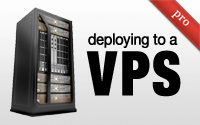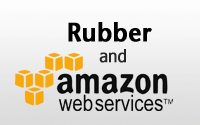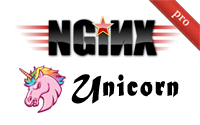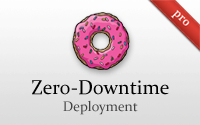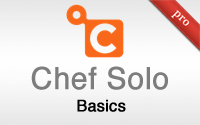Categories
- Active Record
- Active Resource
- Active Support
- Administration
- Ajax
- APIs
- Authentication
- Authorization
- Background Jobs
- Caching
- Code Walkthrough
- Controllers
- Debugging
- Deployment
- eCommerce
- Forms
- Mailing
- Models
- Performance
- Plugins
- Production
- Rack
- Rails 2.0
- Rails 2.1
- Rails 2.2
- Rails 2.3
- Rails 3.0
- Rails 3.1
- Rails 3.2
- Rails 4.0
- Refactoring
- Routing
- Search
- Security
- Testing
- Tools
- Views
Deploying to a VPS
Deploying a Rails application can be overwhelming because there are so many different options. Here I present a pattern for deploying a Rails app to a VPS using nginx, Unicorn, PostgreSQL, rbenv and more.
(18 minutes)
Handling Exceptions (revised)
By default, Rails will render a static error file when an exception occurs in production. Here you will learn how to fully customize this behavior and render dynamic error pages.
(11 minutes)
Memcached & Dalli
Memcached is an excellent cache store, and Dalli is the best way to interact with it through Ruby. Here I show various ways to use Memcached in a Rails app including how to set it up in production.
(12 minutes)
Thread-Safety
The config.threadsafe! option will likely be enabled by default in Rails 4.0. Here you will learn what this option does, how it affects production, and some tips on thread safety.
(10 minutes)
Trinidad
Trinidad is designed to serve JRuby web applications and gives you the power of Java while still keeping the feel of traditional Rails deployment. Here I show how to setup a Capistrano recipe, configure it, and more.
(15 minutes)
Monit
Monit can help ensure your Rails app stays up and running smoothly. Here I show how to set it up, receive alerts, and keep tabs on it through a web interface.
(16 minutes)
Rubber and Amazon EC2
Deploying to Amazon EC2 allows you to scale an application quickly. Learn how to use Rubber to deploy to the cloud with just a few commands and monitor the cluster with various web tools.
(17 minutes)
Nginx & Unicorn
Nginx and Unicorn make a killer-combo for hosting a Rails application in production. Learn how to configure each in a Vagrant virtual machine in this episode.
(19 minutes)
Zero-Downtime Deployment
Here I show how to accomplish zero-downtime deployment using Unicorn. I also cover gotchas when working with migrations and how to put up a maintenance page when you do need to take down the site.
(12 minutes)
Chef Solo Basics
Chef is a provisioning tool which allows you to spin up production servers automatically. Here I show how to get started with Chef Solo and create a custom cookbook.
(17 minutes)

